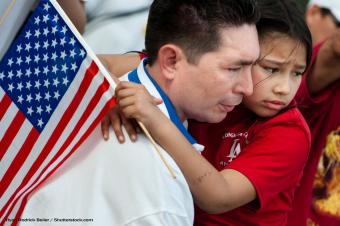Family Reunification
Recent Activity
In the absence of new U.S. immigration reform legislation, this report examines the opportunities that exist within the executive branch and the administration to refine and strengthen current U.S. immigration laws and policies. The administration can exercise its authority to field policies, programs, and procedures that are effective and fair in advancing the goals of the U.S. immigration system.
This conference offers law and policy analysis and discussion on cutting-edge immigration issues.
This report provides a global look at circular migration experiences, depicts various governments’ attempts at creating circular migration, evaluates the economic costs and benefits of circular migration for sending and receiving countries, identifies components of effective bilateral agreements, and reviews outcomes governments might realistically expect from their circular migration policies.
This fact sheet examines proposed changes to the United States’ family based immigration system under The Secure Borders, Economic Opportunity, and Immigration Reform Act of 2007.
This policy paper calls for a "Grand Bargain" between the United States and Mexico to address the areas of immigration and national security. Such a bargain would address the conflicting realities of the U.S.-Mexico relationship. The bargain would be composed of three completely integrated programs and two additional areas that need to be adressed.






